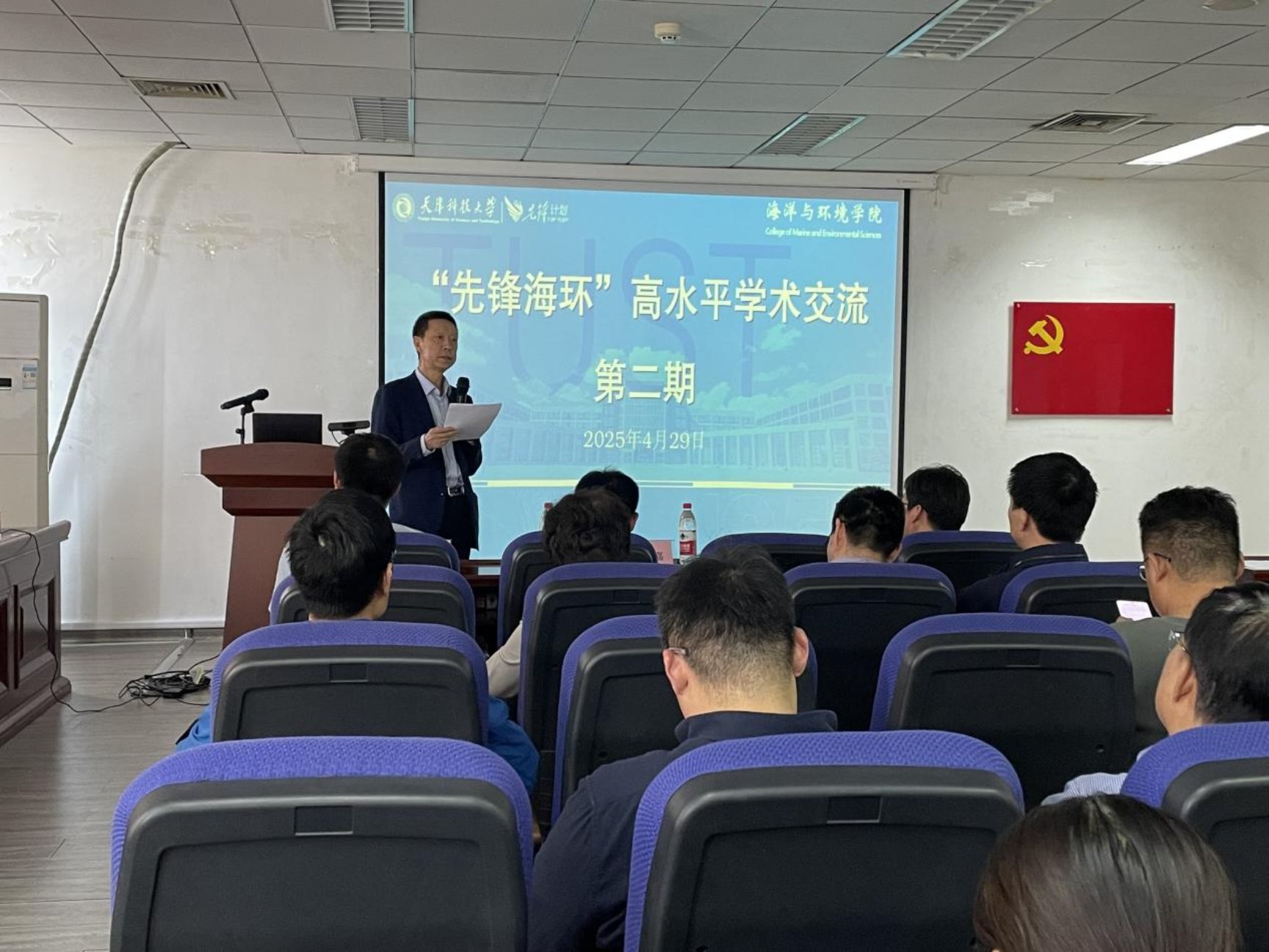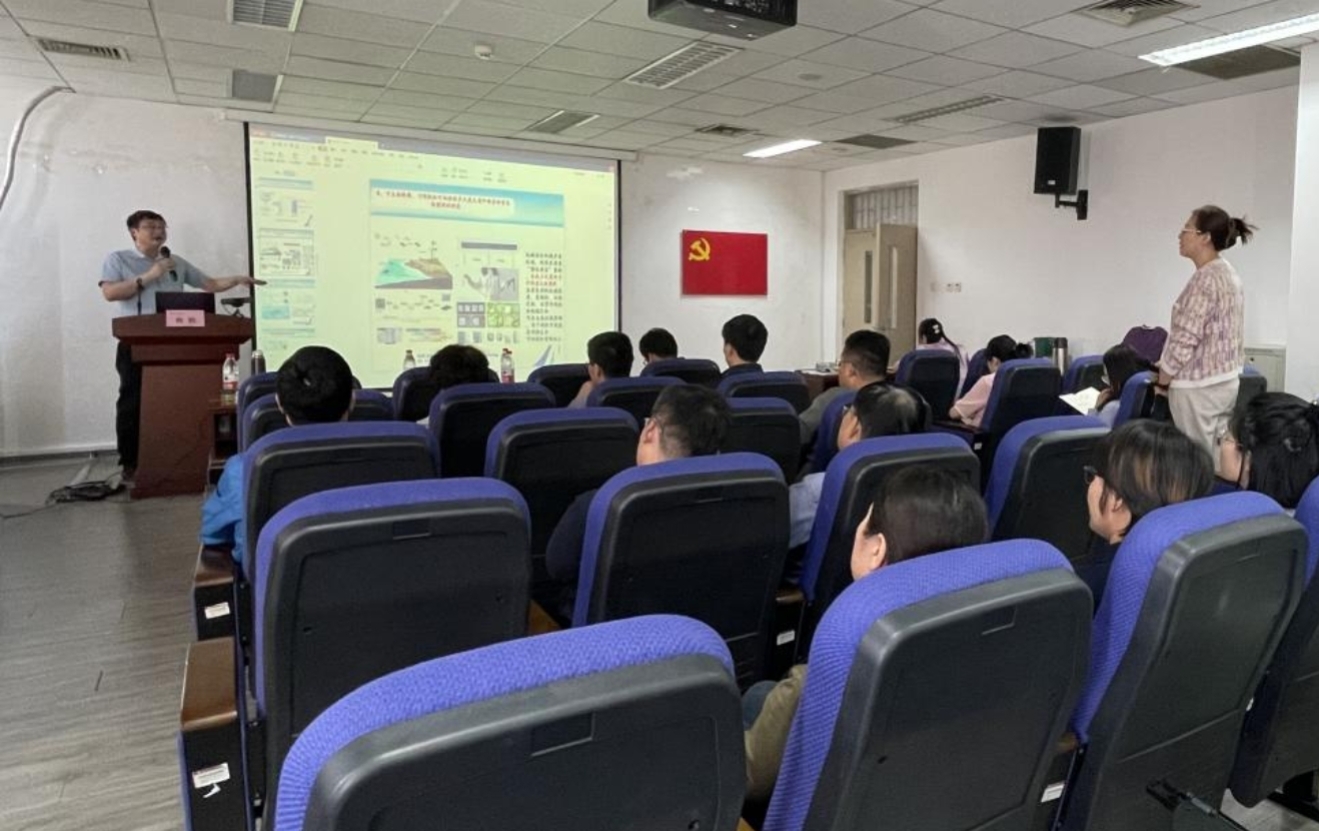
College of Marine and Environmental Sciences Hosts “Pioneer Marine & Environmental Forum” for High-Level Academic Exchange
To foster a vibrant academic atmosphere, strengthen disciplinary development in marine science and environmental engineering, promote interdisciplinary collaboration, and inspire scientific innovation, the College of Marine and Environmental Sciences held the “Pioneer Marine & Environmental Forum” on April 29 in Lecture Hall 9-506 at the Middle Binhai Campus. The event featured academic presentations by four distinguished experts: Researcher Ju Peng (doctoral supervisor, First Institute of Oceanography, Ministry of Natural Resources), Senior Engineer Liu Fanjia (General Manager of Boyi Environmental Technology (Suzhou) Co., Ltd.), Associate Professor Song Guisheng (Tianjin University), and Associate Professor Zhou You (Chengdu University of Technology). College leadership, academic committee members, faculty, and student representatives attended the forum, which was hosted by Professor Deng Tianlong, Dean of the College.

Researcher Ju Peng focused on the high-value utilization of marine bioresources, systematically presenting research advances in repurposing discarded marine biomass such as shells, Spartina alterniflora (cordgrass), and Ulva prolifera (green tide algae). He also introduced cutting-edge technologies for monitoring and detecting marine environmental pollution.
Senior Engineer Liu Fanjia addressed the theme of synergistic development of resources and the environment, detailing breakthroughs in sludge treatment technologies, including microbial protein extraction via alkaline thermal hydrolysis, high-concentration anaerobic digestion of sludge, and the development of solid waste-based functional building materials. He further outlined future prospects for the resource recycling industry.
Associate Professor Song Guisheng shared insights into chromophoric dissolved organic matter (CDOM) in the South China Sea, explaining how its spectral characteristics indicate water mass mixing and microbial transformation processes in the deep sea. He highlighted innovative photochemical techniques to convert refractory organic carbon into forms usable by heterotrophic bacteria, offering new perspectives on marine carbon cycling.
Associate Professor Zhou You delved into the formation of Earth’s primordial ocean from solar nebula accretion, summarizing recent advances in reconstructing evolutionary models of early atmospheric and oceanic systems. He proposed that a significant atmospheric oxidation event occurred during Earth’s formative stages, reshaping understanding of planetary evolution.
The forum sparked lively discussions, with faculty and students actively engaging the experts based on their research interests. Intellectual exchanges ignited fresh ideas and inspired innovative scientific approaches, underscoring the event’s success in bridging academic inquiry with practical applications.


